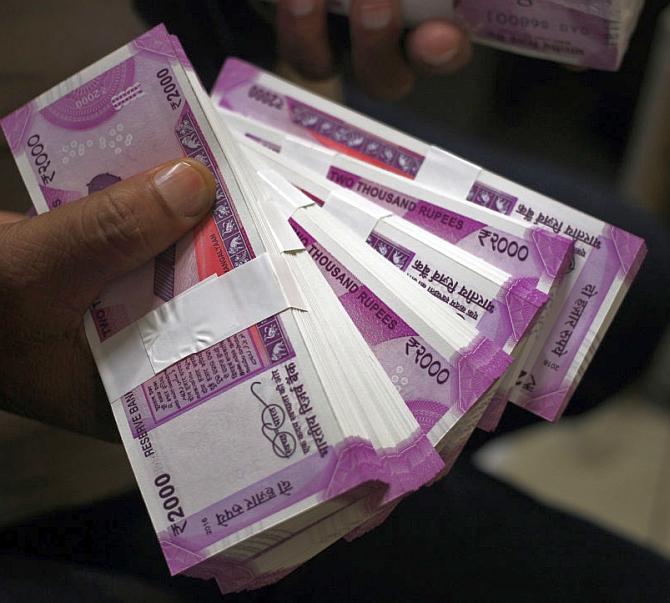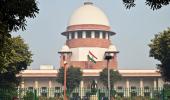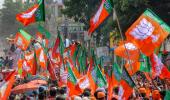A five-judge Constitution bench of the Supreme Court is scheduled to commence a crucial hearing from Tuesday on a batch of pleas challenging the validity of the electoral bonds scheme for funding political parties.

The scheme, which was notified by the government on January 2, 2018, was pitched as an alternative to cash donations made to political parties as part of efforts to bring in transparency in political funding.
According to the provisions of the scheme, electoral bonds may be purchased by any citizen of India or entity incorporated or established in India. An individual can buy electoral bonds, either singly or jointly with other individuals.
A bench comprising Chief Justice D Y Chandrachud and Justices Sanjiv Khanna, B R Gavai, J B Pardiwala and Manoj Misra is scheduled to take up for hearing four pleas, including those filed by Congress leader Jaya Thakur and the Communist Party of India-Marxist.
Ahead of the hearing, Attorney General (AG) R Venkataramani, in a statement filed before the court, has said that citizens do not have the right to information under Article 19(1)(a) of the Constitution regarding the source of the funds.
Holding that the electoral bonds scheme for funding political parties contributes to clean money, the top law officer has said there can be no general right to know "anything and everything", without being subjected to reasonable restrictions.
"The scheme in question extends the benefit of confidentiality to the contributor. It ensures and promotes clean money being contributed. It ensures abiding by tax obligations. Thus, it does not fall foul of any existing right," the AG has told the apex court.
In a written submission filed in the apex court on behalf of intervenor "Citizens' Rights Trust", senior advocate Vijay Hansaria has said the electoral bonds scheme allows political parties to receive donations "behind an iron curtain away from the public gaze".
"The provisions of the amending Acts run counter to the purported objective to achieve transparency in electoral funding," Hansaria, who is assisted by advocate Sneha Kalita in the matter, has said in his written submission.
He has said the scheme of making a contribution to a political party through electoral bonds is a "completely non-transparent mechanism" and is akin to a cash contribution.
On October 16, the apex court said the pleas challenging the validity of the electoral bonds scheme for funding political parties will now be adjudicated upon by a five-judge bench for an authoritative pronouncement.
Prior to that, on October 10, the court took note of the submissions of lawyer Prashant Bhushan, appearing for NGO Association for Democratic Reforms (ADR), that the matter needed adjudication before the electoral bonds scheme opens for the 2024 general election.
One of the PIL petitioners claimed in March that a total amount of Rs 12,000 crore has so far been paid to political parties through electoral bonds and two-thirds of it has gone to one major political party.
ADR, which filed the first PIL in the matter in 2017 on the issue of alleged corruption and subversion of democracy through illicit and foreign funding of political parties and lack of transparency in the bank accounts of all political parties, had moved an interim application seeking that the sale of electoral bonds not be reopened.
On January 20, 2020, the apex court refused to grant an interim stay on the 2018 scheme and sought the responses of the Centre and Election Commission to an interim application filed by the NGO seeking a stay on the scheme.
Only the political parties registered under Section 29A of the Representation of the People Act, 1951 and which secured not less than 1 per cent of the votes polled in the last election to the Lok Sabha or a state legislative assembly are eligible to receive electoral bonds.
According to the notification, electoral bonds shall be encashed by an eligible political party only through an account with an authorised bank.
The apex court had, in April 2019, also declined to stay the electoral bonds scheme and made it clear that it will accord an in-depth hearing on the pleas as the Centre and the EC had raised "weighty issues" that had "tremendous bearing on the sanctity of the electoral process in the country".
The Centre and the EC had earlier taken contrary stands in the court over political funding, with the government wanting to maintain the anonymity of the donors and the poll panel batting for revealing their names for the sake of transparency.











 © 2025
© 2025